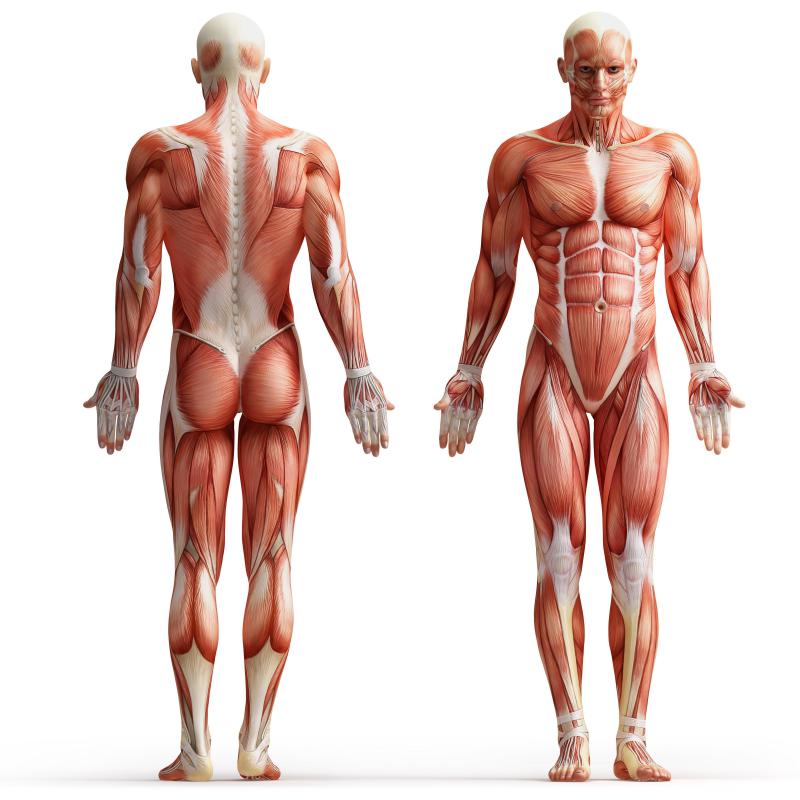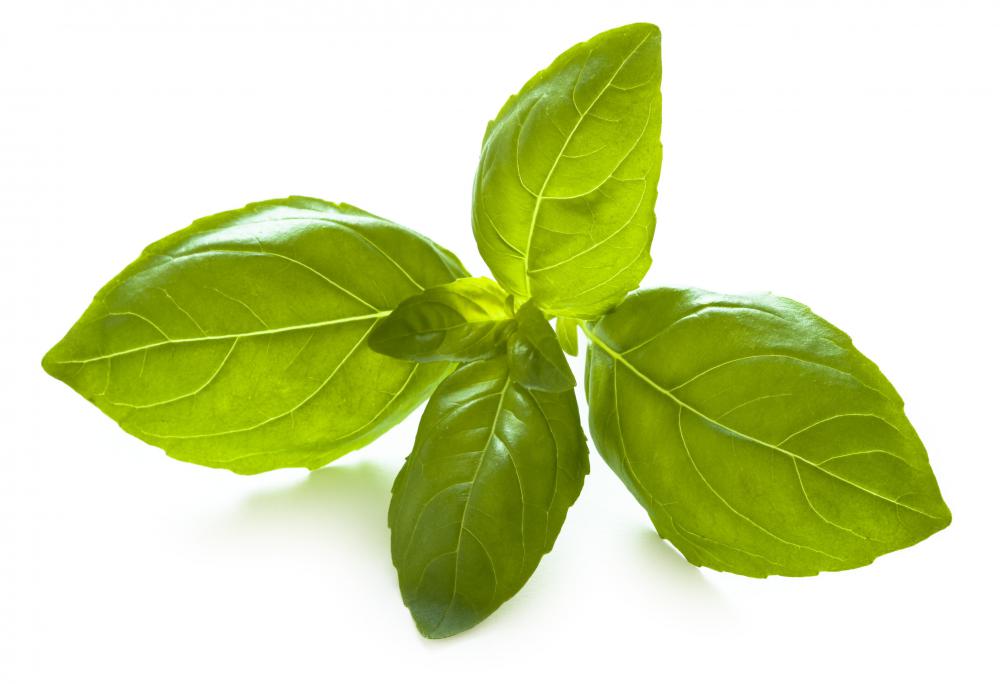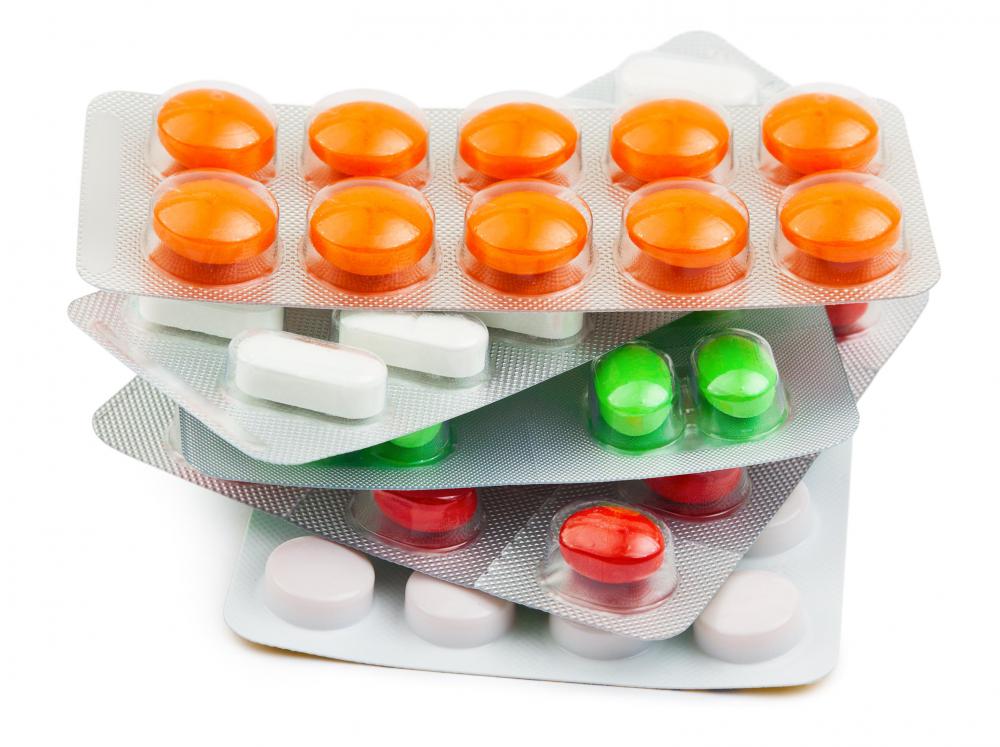At WiseGEEK, we're committed to delivering accurate, trustworthy information. Our expert-authored content is rigorously fact-checked and sourced from credible authorities. Discover how we uphold the highest standards in providing you with reliable knowledge.
What are the Different Types of over-The-Counter Muscle Relaxant?
Over-the-counter muscle relaxants typically fall into three categories: spasmolytics, which work by essentially paralyzing or forcibly softening the muscle fibers throughout the body; neuromuscular blockers, which alter the surface chemistry of muscles to prevent cramping and tension; and homeopathic and herbal remedies, which seek to get similar results though plant-based and other natural ingredients. Different countries have different regulations when it comes to the sale of pharmaceuticals and herbal drugs. As a result, depending on jurisdiction, all of these may be available for general purchase — or none may be.
In the United States, for example, both spasmolytics and nureomuscular blockers are only available by prescription. The U.S. does not regulate or control the sale of homeopathic and herbal remedies, so these are often available but not always in consistent packaging or with regularized dosing instructions. As with any medications, it’s usually a good idea for people to consult with their health care team before starting a regimen. Just because something is available over the counter or contains only “natural” ingredients doesn’t necessarily make it safe for general use.
Spasmolytics

Where available, spasmolytics tend to be the most powerful and effective over-the-counter muscle relaxant. Drugs in this category target the central nervous system and seek to block or change the nerve signals heading to tense or injured muscles. In effect, they cause all nerve signals to slow down. It is for this reason that these sorts of drugs are often referred to as “centrally acting” — they impact all muscles at once, and can’t usually be targeted to any specific area. These are often the best choice for people who are experiencing pain or tension all over their bodies.
Neuromuscular Blockers

Neuromuscular blockers work a little bit differently. Rather than impacting the nerves as a whole, they target muscular tissues that are damaged or “distressed,” which can often be detected by the chemicals and ions on their surface. Blockers work on the muscular level to block or redirect nerve signals that are arriving. The result is similar, but is usually a lot more focused, and can take longer to start working.
Homeopathic and Herbal Preparations

Homeopathic medications generally are based on the idea that you treat a disorder with the same ingredients that cause it, and this holds true for muscle relaxants. Rather than trying to block nerve signals or change the surface chemistry of damaged tissues, these medications typically look to “treat like with like,” intending to stop tension and pain with diluted forms of the very supplements that can cause these problems. Examples include calcarea phosphorica, which may be helpful for neck and upper back pain and tension; kali carb, which is used to treat lower back pain; and arnica, which may help relax overworked muscles.

A number of herbs and plant materials can also be used to form what is basically an all-natural over-the-counter muscle relaxant. Herbs like catnip, valerian, bergamot, licorice, basil and caraway are typically believed to have anti-inflammatory properties, which can help reduce joint swelling. Valerian, a flowering perennial plant, has been used since medieval times to treat neck tension. Other herbs, such as kava root, white willow, horsetail and devil's claw, do better at combating pain. Many of these natural alternatives can be found either combined or in isolation in health or wellness stores, and are commonly sold as teas, capsules, or powders.
At-Home Remedies

People who are not able to purchase prepared herbs or drugs or who simply wish to avoid medicating their pain might also be interested in a number of at-home remedies for muscle soreness and tension. Getting a massage, taking a hot bath, or placing heating pads or hot towels on the impacted areas is often effective, at least in the short term. Adequate rest is also very important.

Some people also find relief by increasing the vitamin and mineral content of their meals. Proper amounts of calcium and magnesium can often help relieve muscle pain, and magnesium can help repair damaged nerve endings, too. Other important vitamins and minerals that help act as muscle relaxants include silica, potassium, vitamin C and alpha lipoic acid. Drinking adequate amounts of water might also help remove toxins from the body that can be causing muscle pain. People who have balanced diets and are adequately hydrated often find that they are less susceptible to muscular tension in the first place, which suggests that these sorts of treatments can be preventative, too.
Side Effects and Safety Precautions
There are a number of side effects associated with muscle relaxing drugs and herbs, though the intensity and duration of the symptoms can vary a lot from person to person, and depends at least in part on how much was ingested. Nausea, blurred vision, and headaches are some of the most common, particularly where spasmolytics and neuromuscular blockers are concerned. Extreme drowsiness is also very common. The same reactions that force the muscles to relax commonly also trigger deep relaxation in the sleep center of the brain, which can make it dangerous for people to drive or operate machinery while taking these sorts of drugs.
One of the biggest risks with over-the-counter medications and herbal supplements generally is the possibility of drug interaction, and this is certainly a valid concern where muscle relaxants are concerned. Most preparations are generally safe to take in isolation, but blood chemistry is a complicated thing; the presence of other drugs or medications can lead to a variety of problems. Sometimes muscle relaxants will simply not be effective, but more serious consequences like increased heart rate, difficulty breathing, or even death can also result. For this reason it’s usually a good idea for people to get the opinion of a healthcare provider before taking any drugs, even if they are available over the counter or in “natural” food stores.
AS FEATURED ON:
AS FEATURED ON:
















Discussion Comments
@shell4life – I got very sleepy and queasy after taking a spasmolytic. I had been having tightness and soreness in my lower back, and I needed to take something so that I could get some rest.
I took the pill right before lunch. It worked so quickly that I had trouble finishing my lunch! My jaws became sluggish, and I could feel the muscles in my esophagus slowing down, because the food was having trouble going down.
I absolutely had to sleep. I had no choice! I stayed out for two hours straight, and I could have slept longer if the phone hadn't rung. I felt pretty gross for the rest of the day.
My local health food store has an OTC muscle relaxant section. I was surprised to find so many different herbs there that could treat muscle tension.
I really thought that tight muscles would require something strong for treatment. I once took a prescription muscle relaxant, and it helped, but it made me nauseous, and I had to lie down for a few hours. I thought that this was my only option for treatment, but it's nice to know that I have a few natural remedies to choose from.
I live in the United States, so I didn't even know that there was such a thing as over-the-counter muscle relaxers. I'm guessing that if I tried to order them online, the company would not be allowed to ship them to me.
I do have a lot of tension in my neck and shoulders at times. I eat a healthy diet, so I don't think it is related to a vitamin or mineral deficiency. I think that I just tend to hold tension in my muscles while I work.
About the only legal thing that will relax my muscles is a hot towel. I have this towel that I filled with rice, folded over, and sewed shut, and I heat it up in the microwave. I put it on my tense muscles, and within about ten minutes, they feel a lot more loose.
Post your comments